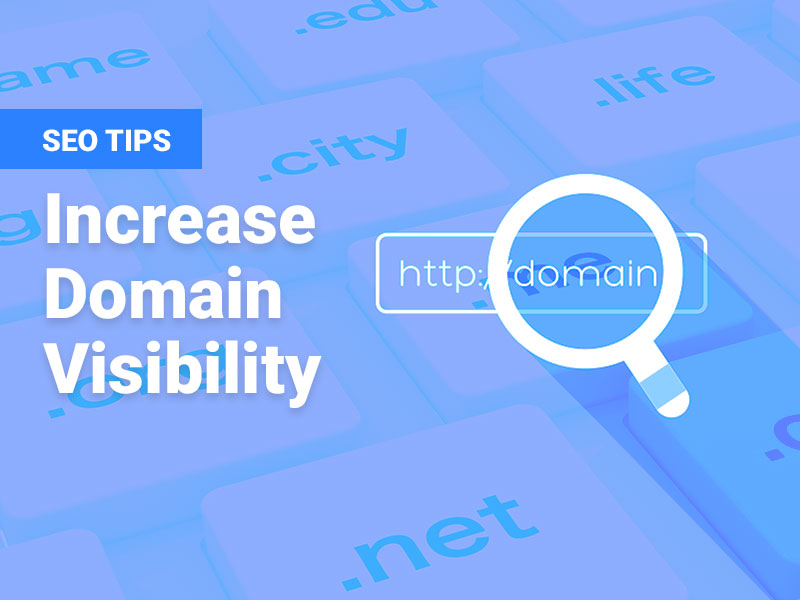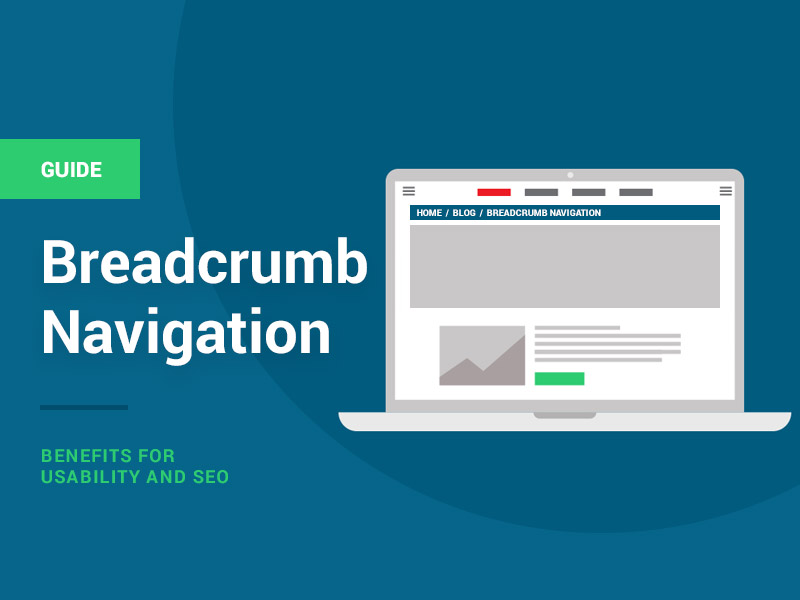SEO is an acronym for “Search Engine Optimization.” Understanding SEO is crucial, as it increases your traffic and brand awareness. 40% of website traffic starts with a search query. This is the reason why SEO is important.
Google assesses a site’s content, page elements, tags, and site availability. It does this by using a complex algorithm sequence. This helps them to identify websites relevant to a user’s query. Make sure that apart from finding you, the Googlebot crawling the web also likes what it sees.
Unless Google finds your WordPress business site, you won’t get indexed. You’ll also have zero chances of ending up on the first page. In this case, knowing your business name or URL is the only way for users to find you.
Luckily, WordPress has built-in functionality to please these bots. Its features guide the search engine through individual posts, pages, and categories. This makes it easy to collect information about your enterprise. It also increases your chances of appearing in SERPs. Key SEO tools enable you to give organic searchers and Google what they need.
Let’s get into the discussion of how to increase a domain’s visibility.
Increasing Domain Visibility
1. Link Building
Backlink services are part of a good off-page SEO strategy. This is because they point users to your website from third-party websites. If the backlinks come from good sources, your page’s authority will increase. This helps with the SEO rankings of search engines.
Choosing link building services is very important. Link building will have external websites linking to the content on your website. If the page linking to you has the highest page authority, the PA gets shared with your page. With this, Google can determine the ranking of your website.
Link building focuses on quality, not quantity. If you’re building a link-building strategy, you should know that it’s a gradual process. The pages where you build links play an important role in determining how high you rank.
Backlinks are recommendations from outside parties. A backlink from a reputable website indicates that what’s on your website is of good value. If a website from a certain area of expertise ranks links back to you, it shows a vote of confidence for your website. It encourages search engines to believe in your content.
Off-page SEO also impacts your ranking within SERPs. Building links is at the heart of off-page SEO. Search engines use backlinks as indications of the linked-to content’s quality.
A website with many high-value backlinks usually ranks better. Improving the off-page SEO of a website involves improving the search engine. It also involves improving user perception of a site’s quality.
2. Keep an Eye on Your Competitor
This is the best way to get insights into SEO, digital marketing, and keywords. Keeping an eye on competitors gets you exceptional ideas. You can use the ideas to develop and update your online marketing strategies. Keeping an eye on your competitor also helps you to stay ahead of them.
So how do you go about keeping an eye on your competitor?
- Subscribe to their articles. This enables you to get real-time updates.
- Visit their social media pages. This is for you to analyze their activities.
- Look over to the competitor’s blog. This enables you to get ideas that will improve your marketing content.
- Use popular tools such as the Hootsuite. They provide insights into you and the competitor’s social media channels.
- Look at your competitor’s keyword strategies. By doing so, you’re likely to find something you could try out.
Take time and figure out what’s working for the website you’re competing against on the SERPs. It helps to take your analysis to the next level. You get to understand why a certain approach works.
3. Perform SERP Analysis
SERP analysis is a process of looking at the top-ranking websites in the SERP. Check whether the keyword you want to rank for is relevant. You’re also able to check the possibility of outranking your competitors.
Perform a SERP analysis for every keyword you plan to optimize for. You can choose to go the old school way and analyze results in Google search. You can also use a keyword research tool with SERP analysis. You need to ensure the SERP you analyze is accurate for your desired location.
SERP analysis is a combination of working SEO metrics and users’ search intent. If the keyword is relevant, check your competitor’s strengths and weaknesses. This is thanks to the authoritative and backlink metric.

4. Be Comprehensive
When writing articles, ensure you answer all the necessary questions. Many readers like this because it gives them convenience. It eliminates the need to refer to other sources. When ranking for certain keywords, check the subtopics left out. The article can then get updated to cover them.
Comprehensive coverage helps in ranking an existing page for long-tail keywords. The machine-learning algorithm from Google forms associations between keywords and entities. This establishes relevance.
5. Get Verified by Google
Depending on how easy it is to read and categorize your website pages, Google will be able to discover them. It crawls your pages by submitting your business to Google Maps using Google My Business. To do that, ensure:
- You create an account with Google My Business
- Then find your business on Google Maps
- Claim your business on Google Maps
- Wait for a physical verification code in your mail. Then enter it in your Google My Business profile
Google verifies you once you claim your business. From then on, you’ll be able to optimize your Google My Business listing. Your business begins to pick up impressions and more clicks. This depends on how complete your business listing is.
6. Use Digital PR to Earn Authority Backlinks
Earning authoritative backlinks at scale is the biggest challenge SEOs face. Backlinks, content, and RankBrain are Google’s top three ranking factors. Many different link-building strategies can earn you relevant links. The issue is that many tactics are difficult to scale.
Digital PR helps you to earn links through the creation of amazing content. It’s like creating and promoting content that journalists would like to cover and link to. It’s about thinking like a PR and executing like an SEO.
Digital PR is about promoting linkable assets with a solid outreach strategy. The right story can deliver significant numbers of earned links from publications. That right there is the catch, as your next client could be hanging out there online.
7. Market Your Website on Social Media
Social media sites have high domain authority. Through them, you’re able to reach new audiences and get more likes and shares. Be patient and avoid posting so much at a time.
Have a schedule and share the links to your blog post. By doing so, you stay connected with your readers.
8. Complete an SEO Audit on Your Website
An audit is a systematic examination of a concept, event, or financial book. It’s done to figure out where you stand and how to make better decisions in the future. So audit your website using an SEO Reporting Tool of your choice in order to better understand what your metrics are like for search traffic.
Yes, SEO companies offer this service. But how about saving that cash by doing it yourself?
An SEO audit examines your site’s performance. It also creates goals based on what you find and implements tactics to reach the goals. The process fixes any SEO issues and increases profits.
When doing an SEO audit, look for the following:
- Check whether your website pages have SEO meta titles and descriptions. They assist in gaining user click-through from SERPs. They advertise content to searchers. They let them know what a given page has concerning what they’re looking for.
- Check whether every page on your website is optimized for SEO keywords.
- Check if your URL structure is optimized for search engines. The URL should be simple, short, and easy for search engines to tell what the page is about.
- Ensure every page and blog post is well-formatted.
- Check whether all your images have keywords in their ALT tags.
- Check whether you’re using links in your content.
9. Reach Out to Websites and Blogs Already Noticed by Google
Reach out to bloggers and influencers with a larger audience in the industry. Then invite them to do a guest post on your blog. Let them promote the post to their audience. By doing so, your website will get noticed by net new prospects.
You can also get them to feature you in one of their round-up, review, or social media posts with a link to your website.
You can also offer to write a guest post for their blog, then link your website to the post.
Regardless of your approach, ensure you reciprocate or offer something of equal value. Something that will have both parties help each other reach a broader audience.
Key Takeaway
Search Engine Optimization drives businesses across all industries. Optimize web pages to turn up higher in search engine results. Do this by producing higher-quality content.
The higher your website ranks for the right search queries, the more traffic it gets. Many people are turning to the internet for everything. So there’s no denying that SEO should be part of your digital marketing strategy.
By placing the above non-technical SEO tips into practice, you’re sure to see fast results.







